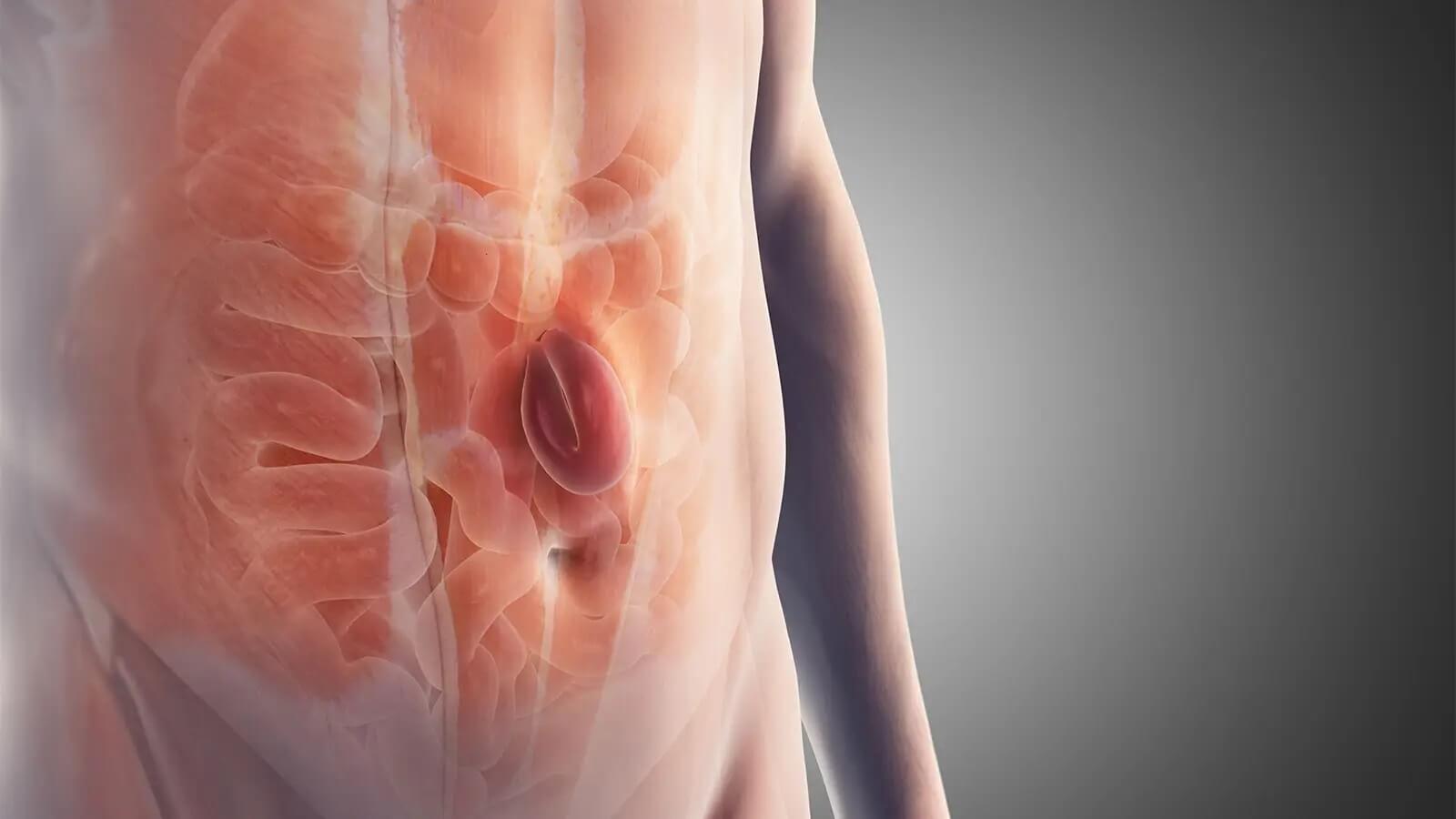What are Inguinal Hernia?
Inguinal and Ventral Hernias Treatment at Wings Hospital, Surat
An inguinal hernia occurs when a part of the intestine or fat from the abdomen pushes through a weakness in the abdominal wall or groin area. It is most common in men and can cause a noticeable bulge in the groin or scrotum.

Causes of Inguinal Hernia
- Weakness in the abdominal muscles, often present from birth.
- Increased pressure in the abdomen due to heavy lifting, chronic coughing, or straining.
- Aging, which causes the abdominal wall to weaken.
Symptoms of Inguinal Hernia:
- A visible bulge in the groin area, especially when standing or straining.
- Pain or discomfort in the groin, particularly during physical activity or lifting.
- A feeling of heaviness or pressure in the abdomen or groin.
- In severe cases, nausea, vomiting, or the inability to push the bulge back in.
What are Ventral Hernia?
A ventral hernia occurs when a part of the intestine or fatty tissue pushes through the abdominal wall at a location other than the groin. This type of hernia commonly occurs at the site of a previous surgical incision and is known as an incisional hernia.
Causes of Ventral Hernia
- Weakness in the abdominal muscles, often resulting from a previous surgical incision.
- Excessive pressure on the abdominal wall due to obesity, chronic coughing, or straining.
- Age-related muscle weakening.
Symptoms of Ventral Hernia
- A bulge in the abdominal area that is more visible when standing or straining.
- Abdominal pain or discomfort, especially during movement or lifting.
- A feeling of fullness or heaviness in the abdomen.
- In some cases, nausea or vomiting may occur.
Diagnosis at Wings Hospital
Dr. Vikram Lotwala and the expert team at Wings Hospital, Surat, will perform a comprehensive evaluation to diagnose inguinal and ventral hernias. This may include a physical examination, imaging tests such as ultrasound or CT scans, and a review of your medical history. Prompt diagnosis helps in planning the most effective treatment approach.
Treatment Options
Conservative Management: For small hernias with mild symptoms, lifestyle changes such as weight management and avoiding heavy lifting may be advised. However, most hernias will require surgical intervention to prevent complications.
Surgical Treatment: The primary treatment for inguinal and ventral hernias is surgery. Dr. Vikram Lotwala offers advanced surgical options:
- Laparoscopic Surgery: A minimally invasive technique that uses small incisions and a camera to guide the surgery. This approach reduces recovery time and minimizes scarring.
- Open Surgery: In some cases, traditional open surgery may be required for larger or more complicated hernias.
- Hernia Repair with Mesh: A mesh may be used to reinforce the weakened area of the abdominal wall, reducing the risk of recurrence.
Why Choose Wings Hospital for Hernia Treatment?
- Expert Care: Led by Dr. Vikram Lotwala, a skilled colorectal and general surgeon, Wings Hospital offers specialized care for hernia repair, ensuring the best outcomes.
- Minimally Invasive Techniques: We utilize laparoscopic surgery for quicker recovery, minimal pain, and less scarring.
- Personalized Treatment Plans: We understand that each hernia is different. Dr. Lotwala will work closely with you to develop a tailored treatment plan that best suits your condition and lifestyle.
Featured Products
Women perfume
Amet nisl purus in mollis nunc. Sed viverra tellus in hac habitasse platea dictumst
Pleasant fragrance
Amet nisl purus in mollis nunc. Sed viverra tellus in hac habitasse platea dictumst
Quality assurance
Amet nisl purus in mollis nunc. Sed viverra tellus in hac habitasse platea dictumst
Women perfume
Amet nisl purus in mollis nunc. Sed viverra tellus in hac habitasse platea dictumst
Women perfume
Amet nisl purus in mollis nunc. Sed viverra tellus in hac habitasse platea dictumst
Women perfume
Amet nisl purus in mollis nunc. Sed viverra tellus in hac habitasse platea dictumst
Women perfume
Amet nisl purus in mollis nunc. Sed viverra tellus in hac habitasse platea dictumst
Pleasant fragrance
Amet nisl purus in mollis nunc. Sed viverra tellus in hac habitasse platea dictumst
Quality assurance
Amet nisl purus in mollis nunc. Sed viverra tellus in hac habitasse platea dictumst
Women perfume
Amet nisl purus in mollis nunc. Sed viverra tellus in hac habitasse platea dictumst
Women perfume
Amet nisl purus in mollis nunc. Sed viverra tellus in hac habitasse platea dictumst
Women perfume
Amet nisl purus in mollis nunc. Sed viverra tellus in hac habitasse platea dictumst




Contact US
Schedule a Consultation Today
If you suspect you have an inguinal or ventral hernia or are experiencing any of the symptoms, don’t hesitate to contact Wings Hospital, Surat. Book a consultation with Dr. Vikram Lotwala to get the expert care you need for hernia repair and recovery.



